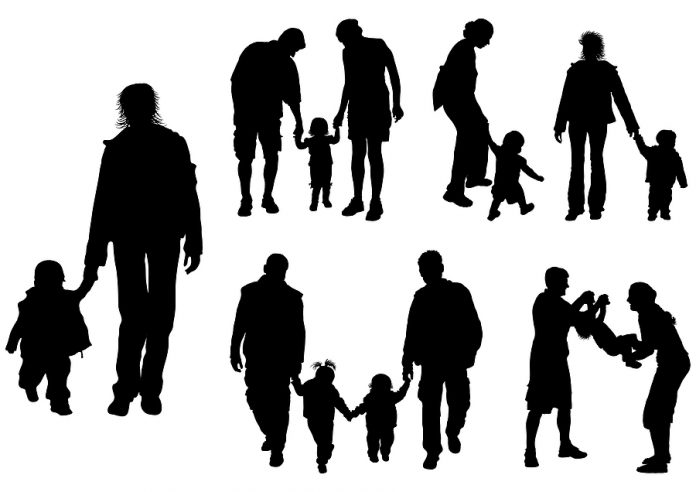The first 1000 days of life, also known as the golden window of life, is classified from the time of conception to 2 years of age.
This is a crucial and sensitive period characterised by rapid physical and mental development. Developmental milestones include appropriate weight gain that means children should have a balanced composition of height to body weight, complete nutrition, and an emotional wellbeing for a healthy start to life.
Significant and unprecedented growth is observable in the first 1000 days in the child’s life where parents can see visible impact on children’s physiological growth and cognitive development: the brain, body, organs, and immune system develop rapidly. Abundant with opportunities, this time is affected by biological factors, such as nutrition of the mother during pregnancy, gestational age, birth weight, duration of breastfeeding, childhood infections, and psycho-social factors such as economic status, parental education, and stimuli in the environment. Active and healthy parental and caregiver involvement helps to ensure proper growth and stimuli and inculcates positive behaviour.
Caring and nurturing relationships are of the essence which will be ensuring a smooth transition from infancy to childhood, childhood to adolescence and then to adulthood. Effective and responsible parenting can also instil social and moral values, creating growth opportunities and helping the child become life-ready.
Parents play a crucial role in the first 1000 days of life. A parent is often called the child’s first teacher and has a central role in shaping a child’s environment.
The presence and positive interaction of parents and caregivers with the child foster optimism, confidence, and positive behaviour. Healthy parental interaction e.g. playing, signing to them, doing activities that involve physical play, and providing them with age-appropriate toys, lays the foundation for success in social skills and academic attainment.
The parenting goal must be to ensure safety, security, overall wellbeing with abundant learning opportunities for holistic growth and development of the child. Parents and caregivers introduce the world to the child through their perspectives and beliefs that are founded on cultural values and identities.
Effective parenting can lead to healthy outcomes in social, emotional, and cognitive aspects.

Responsive caregiving or interactions is an important aspect for the parents to understand. The appropriate response to the many signs and signals given by the child is linked with the social, behaviour, and cognitive behaviour of the child.
The Barnard model shows the contribution of caregiver and infant in creating smooth, healthy, and positive interaction which leads to the adaptive process. A caregiver is responsible to be sensitive in recognizing the cues, identify the engagement and disengagement behaviour through nonverbal gestures and motor movement of infants, help in alleviating the distress, and provide stimulations such as toys that ignite sensory development like feel balls, textured books, and toys with sound and music for socio-emotional and cognitive growth. Infants/children are also equally accountable for giving clarity of cues and respond to parent/caregiver’s behaviour when consoled or soothe.
The smooth adaptive positive interaction and quality of stimulations result in optimum development and strengthened caregiving style and adaptative skills.
Hospitals are centre points for parents to receive information and enrol in parenting education programmes. Essentially, hospitals must adopt the Baby-Friendly Initiative to support the newborn and the mother through various interventions:
1. during the antenatal period,
2. establishing breastfeeding and developing a physical and emotional bond with the baby, and
3. postpartum support to continue breastfeeding.
Healthcare workers can support delivering parenting education to pregnant and families in multiple ways.
• Healthcare workers can influence parents’ choices and encourage them to attend training and induction programmes such as antenatal education programme and birthing classes, and classes designed to support newborn parenting.
• During the hospital stay of the mother, healthcare workers and nursing staff should provide in-person lactation classes to help in aspects like “latching on” and identifying signs of danger to seek medical attention.
• Healthcare workers should help parents understand the developmental milestones and record the baby’s growth for a satisfying parenting experience.
• Parents could be encouraged to join support groups and discussion groups to talk about their challenges and learn from each other’s experiences under the guidance of a professional healthcare provider.
• Healthcare workers should provide reliable information and support to help parents make informed decisions and choose proactive and effective parenting. Home visits could also be a part of the support mechanism.
• Healthcare workers can provide many resources for the education of parents including:
• Safety and security measures to “baby-proof” the home.
• Help create emotional bonds of the baby with the parents and siblings.
• Teach injury prevention.
• Provide support to contact healthcare providers in emergencies.
• Offer parenting tips to cope with the new addition and new routines of the family.
• Refer to specialists and paediatricians for professional opinions and consultancy.
Mohsina Gujrati, a Nurse Navigator at the Home Health Services Aga Khan University Hospital, is the co-author of this blog.





























